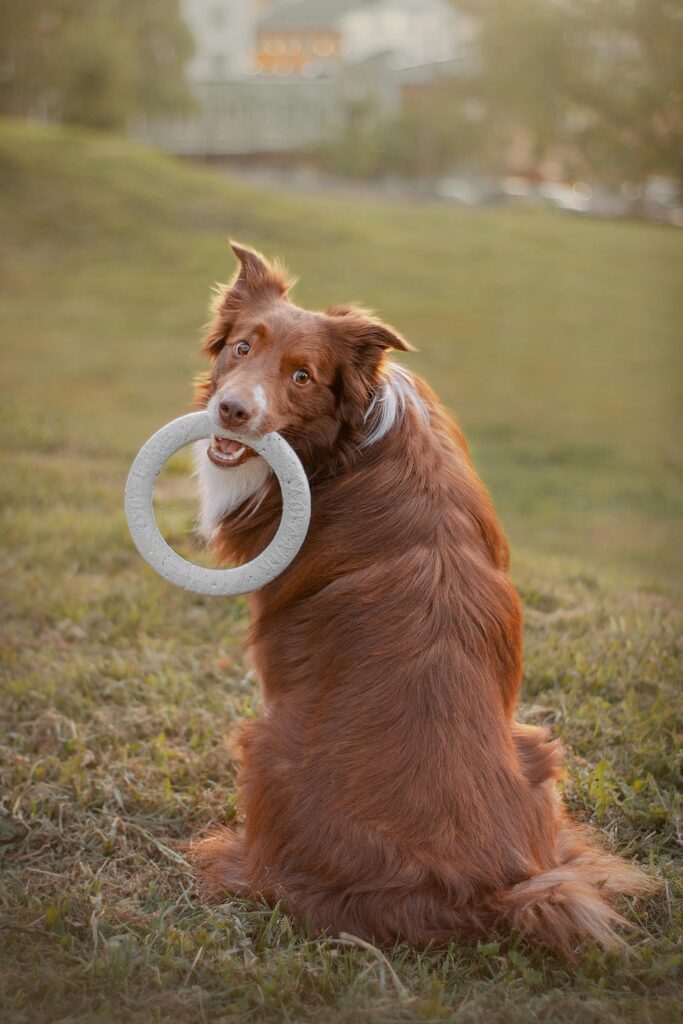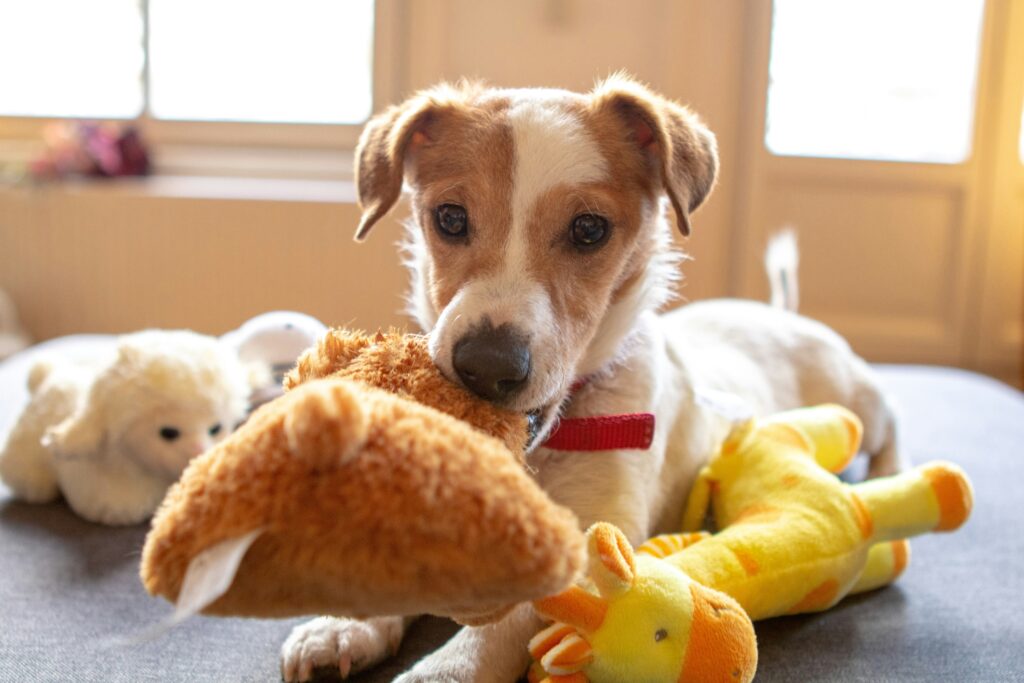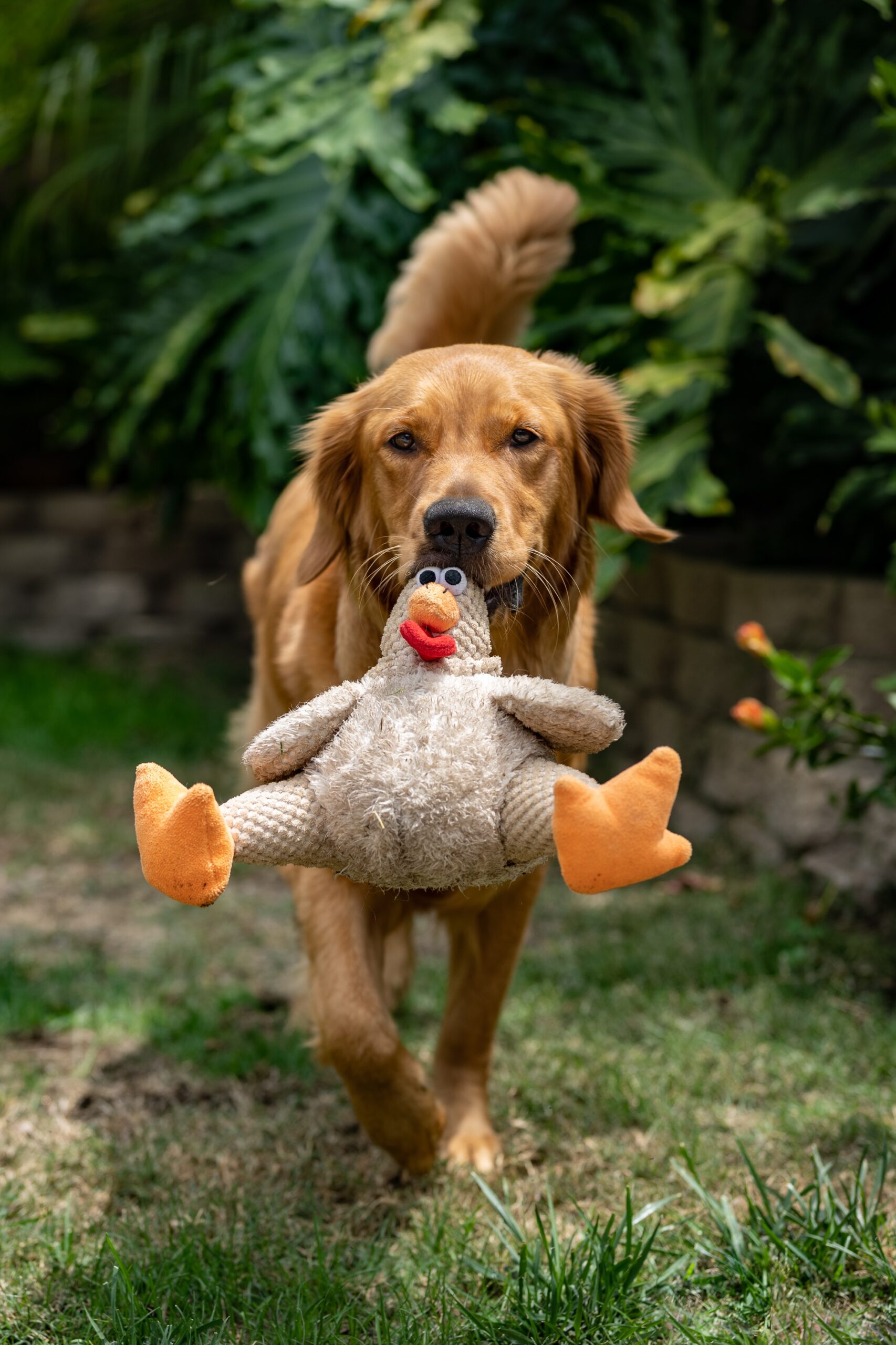Dog toys are essential for your pet’s health, training, and mental stimulation. With so many options available, it can be confusing to choose the right toy for your dog. This comprehensive guide will help you understand the different types of dog toys, factors to consider while picking a toy, and safety tips to ensure your furry friend stays happy and healthy.
Thank you for reading this post, don't forget to subscribe!
The Age of the Dog
Choosing the right toy depends significantly on your dog’s age:
- Puppies: Young dogs need toys made from softer materials to avoid damaging their developing teeth. When puppies begin teething, they require lots of chew toys to soothe their gums. Avoid hard toys at this stage.
- Adult Dogs: After teething, adult dogs can play with harder toys. They can also enjoy more interactive toys like fetch balls and tug-of-war ropes.
- Senior Dogs: As dogs age, their teeth and jaw strength decline. Opt for softer toys to prevent any dental issues and ensure they can still enjoy playtime.
The Dog’s Jaw Size
Toys should match your dog’s jaw size:
- Large Dogs: Ensure toys are not too large to fit comfortably in your dog’s mouth and not so small that they could be swallowed.
- Small Dogs: Select toys that fit well in their mouths and avoid any detachable small parts to prevent choking hazards.
The Personality of the Dog
Consider your dog’s behavior and preferences when selecting toys:
- Active Dogs: Breeds like Labrador Retrievers are energetic and may need a variety of toys to keep them engaged.
- Lazy Dogs: Breeds like French Bulldogs may prefer fewer toys but still need some stimulation.
- Intelligent Dogs: Breeds like German Shepherds enjoy puzzle toys that challenge their minds.
- Independent Dogs: Some dogs enjoy playing alone, so offering a mix of toys can keep them entertained.
If you’re unsure which toys your dog will enjoy, try rotating different types. This way, you can observe their preferences and prevent boredom.
Safe Dog Toys

Ensuring the safety of your dog’s toys is crucial. Here are some safe toy options:
- Balls: Versatile and available in various shapes and sizes, balls are perfect for fetch and chewing. Always choose durable, non-toxic materials.
- Tug Toys: Great for non-aggressive dogs. Ensure you don’t pull too hard to avoid damaging your dog’s teeth, and teach them to release on command.
- Chew Toys: Essential for every dog to prevent them from chewing on household items. Opt for sturdy, non-toxic chew toys.
- Plush Toys: Suitable for young puppies before they start teething. Supervise playtime to prevent ingestion of torn pieces.
- Puzzles: Excellent for mental stimulation. Puzzle toys with hidden treats can keep your dog engaged for longer periods.

